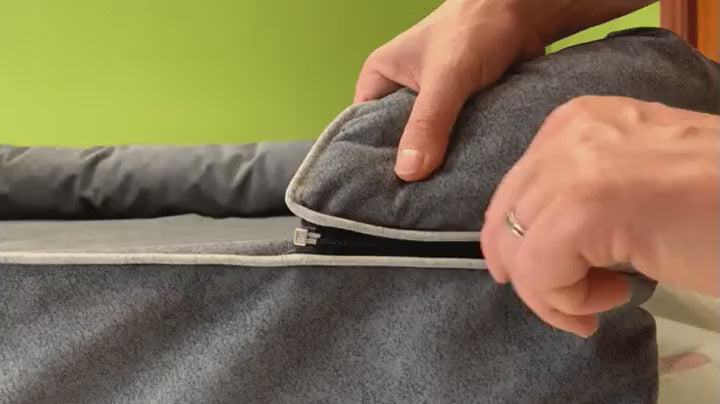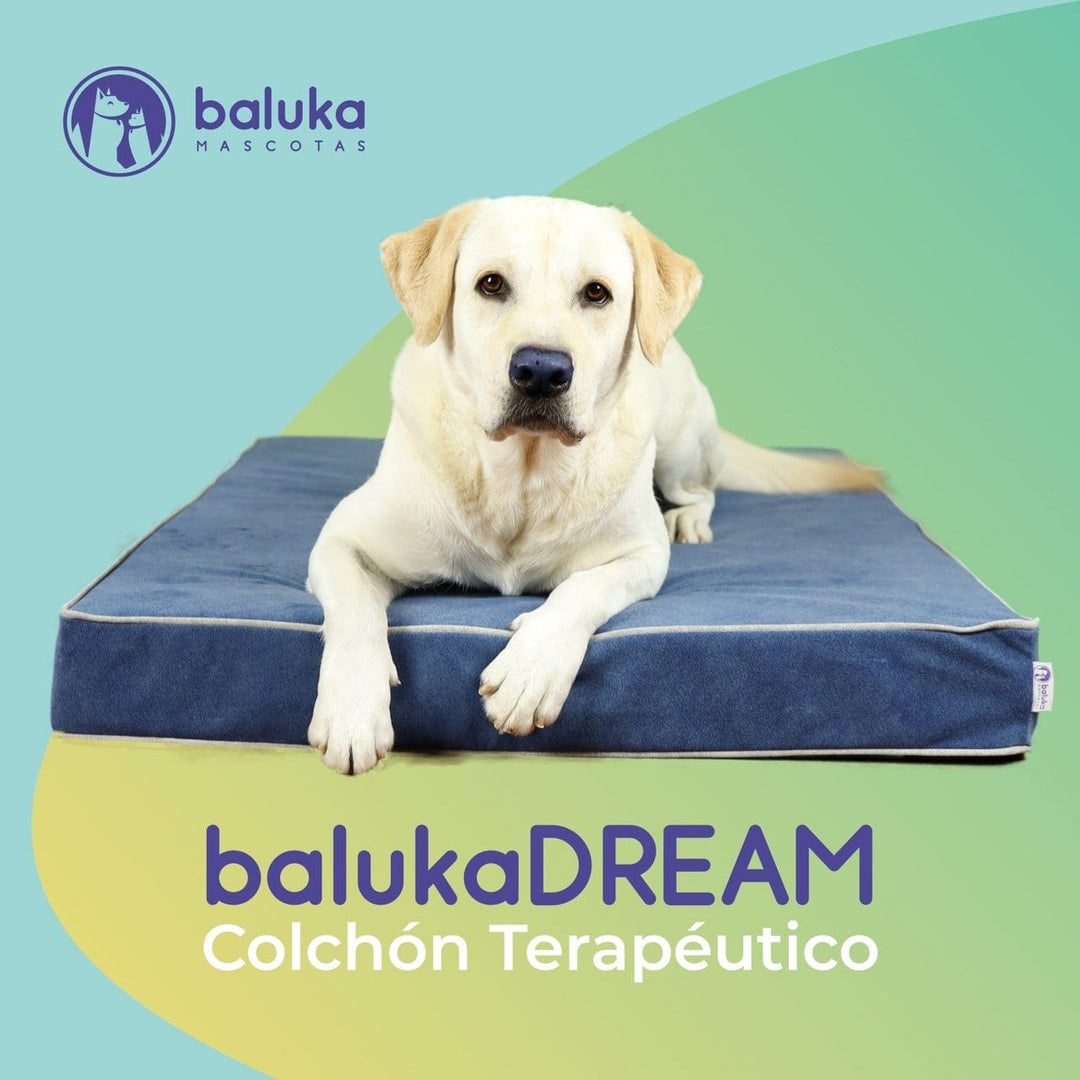Our furry friends are part of our family and, as with any loved one, we are concerned about their well-being. So, sometimes our canine friends suffer pain, but it is not always easy to interpret their signals.
In this Baluka post we explain how to tell if your dog is in pain and what steps you can take to alleviate it.
Changes that show that your dog is in pain
Logically, dogs cannot express in words when something hurts, but there are certain signs, certain changes in them that indicate that they are not feeling well. Being attentive to these changes in their behavior or physical condition will help us identify when something is wrong.
1. Changes in behavior
A sudden change in behavior is one of the first signs that our dog is suffering. If he is usually playful and energetic, and suddenly you notice a drastic change, it could be a symptom of pain. Here are some behavioral changes to look out for:
- Decreased appetite: it is normal for dogs in pain to not eat or not eat like they used to. It is also important to observe if they always vomit after eating or have diarrhea, as this could be a sign of a gastrointestinal problem.
- Less interest in playing or doing activities he used to enjoy.
- Seclusion or avoidance of contact with people and other animals.
- Unusual vocalizations such as whimpering, crying or grunting.
2. Changes in mobility
Pain, especially if related to bones or joints, can affect the way your dog moves. Watch to see if he shows difficulty getting up, is hunched or stiff, limps or walks with his tail between his legs. These can be signs of conditions such as arthritis or hip dysplasia in dogs.
3. Changes in posture
Dogs in pain often lie down in a different posture, precisely to try to avoid pain. So, if he suddenly adopts postures you have never seen before, he may be suffering from some kind of discomfort.
4. Changes in sleep patterns
Aside from affecting his resting or sleeping posture, pain can also affect your dog's sleep patterns. If you notice that he is sleeping more or less than usual, you should suspect that something is hurting him, such as his bones or joints.
5. Changes in interaction
If your dog usually enjoys petting, but suddenly seems reluctant to be touched or becomes aggressive when you try to pet him in certain areas, this could indicate that he is experiencing pain in those areas.
Other signs of pain in dogs
- Shivering: although shivering can be a symptom of our dog being cold, it could also be related to fatigue, weakness or chronic pain.
- Excessive licking: it is normal for a dog to lick himself as a hygienic measure. But, if you notice that he licks constantly, especially if it is the same area, it is likely that he is in pain in that area of the body.
- Scratching too much: similar to licking, excessive scratching can also be a symptom of problems, perhaps not pain per se, but intense discomfort, such as the presence of mites in the hair or skin.

What to give your dog when something hurts?
You should not give your dog anything without first knowing the cause of the pain. Pain is a sign that something is wrong, but its origin is very diverse, from typical diseases in dogs to trauma due to blows.
If you detect any of the above symptoms, it is best to go to the veterinarian to be examined and find out the source of the problem. Thus, if the origin of the pain is a viral or bacterial disease, it is usually treated with antibiotics (although some are prevented with vaccination, such as canine rabies). If the pain is muscular or bone pain, applying heat to the area can soothe the pain, for example, with an electric blanket.
In any case, NEVER self-medicate your dog, as many medications that are safe for humans are toxic for our pets, such as ibuprofen, paracetamol and aspirin.
How can we prevent our dog from pain?
It is said that prevention is better than cure, something that also applies to furry dogs. Thus, maintaining a balanced diet and giving them special vitamin supplements for pets is essential to improve their immune system, skin and coat.
Turmeric For Dogs and Cats

A plus of VITality

The VITamins your pet needs

Turmeric, the most potent natural anti-inflammatory
On the other hand, we must provide a comfortable place to rest, especially if our furry is older, as our dog beds made of viscoelastic fabric to protect their bones and joints, the best complement to the vitamin for dogs Baluka.
Our Viscoelastic Mattresses and Beds for Dogs and Cats

Carry their name embroidered

Take care of their bones

The best for dogs with dysplasia or arthrosis.
With prevention and the ability to detect when our dog is in pain, we will take care of him as he deserves.
















